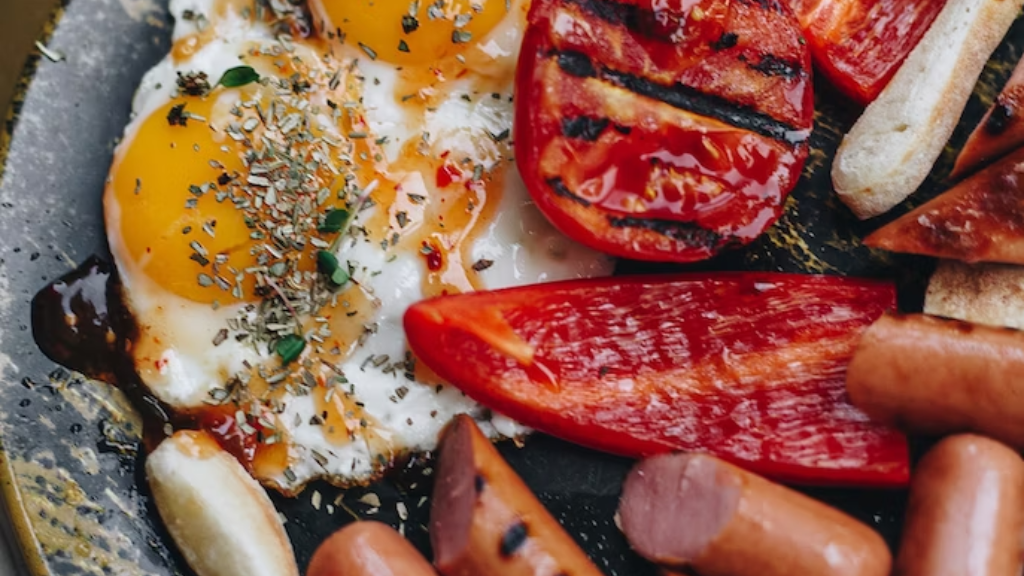
IELTS Speaking Part 2-3 – Food and Drink
IELTS Speaking Part 2-3 – Food and Drink
Describe some food or drink that you learned to prepare.
You should say:
- what food or drink you learned to prepare
- when and where you learned to prepare this
- how you learned to prepare this and explain how you felt about learning to prepare this food or drink.
Version 1
I developed a keen interest in fish and chips, especially since the version in my country differed from the authentic one in the UK. To begin, I turned to my favorite celebrity chef, Gordon Ramsay, who taught me the proper way to make fish and chips. I utilized my personal kitchen for this endeavor.
To replicate decent fish and chips, I needed to find the perfect fish. Unfortunately, the fish available here didn’t work well as they became soggy and absorbed too much oil when fried, resulting in an unpleasant texture. I had to find a suitable alternative that wasn’t as expensive as Atlantic cod, which is typically used. After searching online, I discovered that Pollock could serve as a good substitute. It had a robust flavor and didn’t absorb excess oil like other fish varieties. I gave it a try but failed initially because I struggled to create the right consistency for the beer batter. It was crucial to achieve a thin, crispy, and fresh coating that wasn’t overly thick and bready. However, my first attempt turned out to be a blob of bread.
Undeterred, I studied the batter mixture and improvised using a casserole with plenty of cooking oil since I didn’t have the proper equipment. After a few attempts, I learned how to handle the fish properly, ensuring it didn’t break apart during frying. Finally, I managed to fry the fish successfully and figured out how to remove excess oil. I felt immensely proud of myself because accomplishing such a dish wasn’t an everyday occurrence.
Additionally, I learned how to cook mashed peas, which perfectly complemented the fish. However, I nearly forgot about the chips (fries). In my country, we don’t have various potato options, so I had to rely on the starchy variant. It was important to cut them thickly because if they were too thin, they tended to become soggy quickly. Following Gordon Ramsay’s advice, I blanched the potato slices and then fried them. After a couple of rounds of frying or a few minutes, I dipped them again, creating a crispy outer layer. I felt a great sense of pride in achieving this outcome.
.IELTS Speaking Part 2-3 – Food and Drink Continuation…
What kinds of things can children learn to cook?
Offer me those things that require no cooking at all. For example, non-bake goods that only require mixing a couple of ingredients like cream and putting it on a ready-made pie crust, and then chilling it in the fridge for 4 hours. I think these things can be done, and once children become comfortable, they can start making omelets, pancakes, or toast, which require some heat. However, they still need parental supervision. After that, if they become more proficient, they can start using a cutting knife and a grater, such as a cheese grater, to make dishes like potato hash.
Do you think it is important for children to learn to cook?
Yes, it’s actually very important because learning to cook fosters self-dependency. By knowing how to cook, children also learn to use the right equipment and follow basic safety guidelines, which improves their survival rate in case of emergencies. They need to understand how flames work and be aware of the dangers of cooking. Learning these skills at a young age can reduce accidents as they grow older.
Do you think young people should learn to cook at home or at school?
I believe that both home and school are suitable places for learning to cook. When children learn to cook at home, they are in a comfortable environment. At school, they learn basic organizational skills and have the opportunity to learn from different people, enhancing their social skills.
How enjoyable do you think it would be to work as a professional chef?
I believe working as a professional chef is a combination of enjoyment and stress. I have seen many documentaries and movies about chefs, and being a chef is not just about creativity; it also involves managing a successful business. Running a restaurant requires compromising on prices and ingredients, which demands excellent skills. Chefs must also consider portion control and maintaining the freshness of ingredients to improve their restaurant.
What skills does a person need to be a great chef?
Besides the usual culinary and plating skills, communication skills are crucial for a chef. Additionally, being proficient with numbers is important. Chefs need to know portion control and be able to calculate ingredient measurements and costs on the spot. They must understand the financial aspects of the business, including expenses such as rent and salaries. Good accounting skills are essential.
How much influence do celebrity/TV chefs have on what ordinary people cook?
I believe celebrity/TV chefs have a significant influence on what ordinary people cook. Especially after the COVID-19 pandemic, many people have turned to cooking at home. TV chefs inspire people to cook by showcasing various recipes and options. Additionally, the increased cost of food delivery during the pandemic has motivated people to learn how to make gourmet meals at home. Cooking has become a popular choice, particularly during these challenging times when going out is limited.
Check Educatorian and IELTS Rizz

Ian Tanpiuco is an ESL and virtual assistant. With a decade of experience, he has become an expert in his field. Dedicated to helping others achieve their goals, Ian works tirelessly in the classroom or as a virtual assistant.

